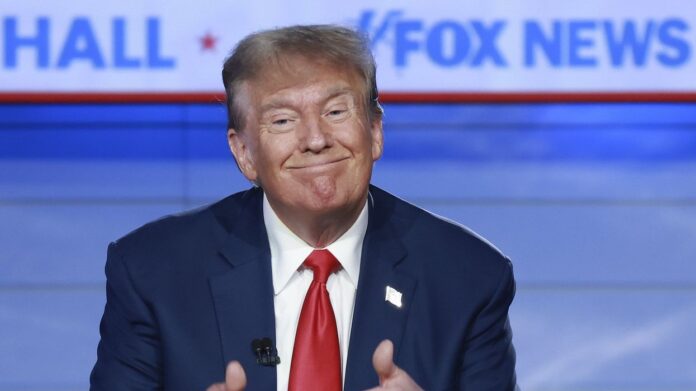Key Falsehoods or Claims: In this article, Donald Trump is falsely claiming that the price of eggs, groceries, and gas have all gone down during his presidency, despite evidence to the contrary. He made these claims during a recent speech in which he sought to bolster his economic record.
Source: The article is from CNN, which is generally considered a neutral outlet in terms of political bias.
Analysis: These falsehoods perpetuated by Trump have the potential to shape public opinion by creating a false narrative of economic success under his administration. The spread of misinformation about the cost of living could lead to misinformed voter behavior and perceptions of the economy. This article highlights the dangers of misinformation and the impact it can have on public perception, particularly in the context of a democracy.
Potential scenarios: If these falsehoods gain traction among the public, it could lead to increased support for Trump’s economic policies, despite the discrepancy between his claims and reality. This could potentially affect voter behavior by swaying opinions on the state of the economy and the effectiveness of Trump’s tariff strategies.
Further reading: For further reading on media influence and misinformation studies, reputable sources such as The Washington Post’s Fact Checker, PolitiFact, and academic studies on the impact of misinformation on public opinion can provide valuable insights. Additionally, exploring the concept of cognitive bias and its role in processing misinformation can offer a deeper understanding of how falsehoods shape public opinion.
Source link
Redirect URL
